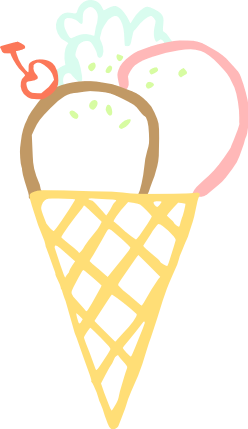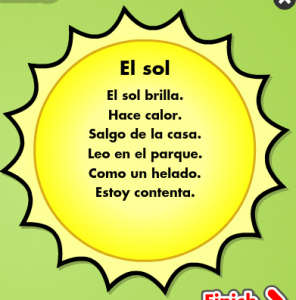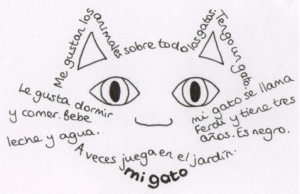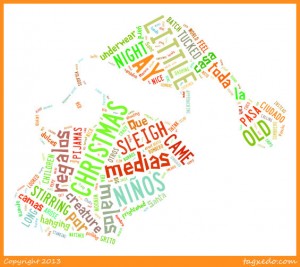Spanish Playground is a great site packed with ideas, and their latest post is full of ideas for celebrating National Poetry Month – April. (It may not be where you are but I like poetry and any excuse!) I liked their suggestions and was inspired to share a couple of their ideas, and a couple of mine!
I particularly like Idea 6 which suggests using ETTC’s Instant Poetry forms. Once you get the idea of the structure, there’s no need to use the site although I like it for the reminder about structure. I had a go at a few…
A Lune (using the 3 word, 5 word, 3 word structure)
 |
La primavera viene Corderos nacen y flores crecen Hay vida nueva |
A 5W, or in Spanish 5Q poem (each lines answer a question who, what, where, when, why)
| Pocoyo Juega con Pato, En el campo, Después del cole, Porque sí. |
 |
A Quinzaine (7 syllables, 5 syllables, 3 syallables = 15 syllables)
 |
Me gusta el helado ¿Chocolate o vainilla? |
And a Verb Verse (think of something you do and six verbs that go with that activity.)
| Respirar, esforzarse, disfrutar Subir , seguir, bajar Corriendo en el bosque |
 |
I also liked Idea 10, using ReadWriteThink’s Theme poem tool. I used the sun as my inspiration (hopeful, aren’t I?)
I took a screenshot but you can save the poem as a PDF and also share it via email.
 An alternative to this would be to write the words in the shape of the subject as a calligram like the cat one below (from here)
An alternative to this would be to write the words in the shape of the subject as a calligram like the cat one below (from here)
I also like the idea of using Wordle or Tagxedo with poetry, either to create word clouds of existing poems or to give shape to new ones. Here’s an example below that I made using Tagxedo and ‘A Mexican Night before Christmas’
About 18 months ago, I posted about a lovely poem by Gloria Fuentes called Doña Pito Piturra and she has many others that could be used for reciting, learning and also making presentation/slideshows with narration. There’s a link on the Spanish playground post to a PDF of activities too!
I also wrote about the QCA unit La Primavera and taking part of the Antonio Machado poem La Primavera and rewriting it. This would be a simple activity to do as a celebration of National Poetry Month too. We posted our on a Padlet (was called Wallwisher) wall so we could share it with a wider audience.
I’ve found this post about Spanish poetry by Federico García Lorca, Jorge Guillén and Rafael Alberti (for older learners I’d say!) and these are more suitable for younger learners. And this post about using poetry to look at rhyming is also very interesting, using one of my favourite little poems –
|
|
Sana, sana, Colita de rana. Si no sanas hoy, sanarás mañana. |
And to finish off, as a 15 year old I was captivated by Joan Manuel Serrat singing poems by Antonio Machado so Dedicado a Antonio Machado (Cantares)














